
Happy Friday!
As a kid playing sports at school, I was a frequent recipient of the “sportsmanship award.” I only understood years later why this used to make my dad crack up—that receiving a trophy for sportsmanship was essentially an acknowledgement that while you weren’t exactly a gifted athlete (or even kind of sucked), you had a generally good attitude and probably shared your snacks.
This was my status on pretty much every team of my athletic career: primary school soccer, middle school basketball, high school tennis and swimming. All those years of after-school practice didn’t make me a great athlete, but I now think the real value was actually in that sportsmanship—and in enduring the humiliation that came with being bad at sports. Seriously.
Was it mildly horrifying, at age 15, to be literally the slowest swimmer on the team? Of course it was! But learning to love swim practice despite that—or at least, getting through it—didn’t just teach me that it’s fine to swim in the slow lane, as I sometimes do today at my public pool. It also fortified me for the challenge of taking up surfing in my 30s—an endeavor that has been humbling, fearsome, and sometimes physically painful. But also: fun.
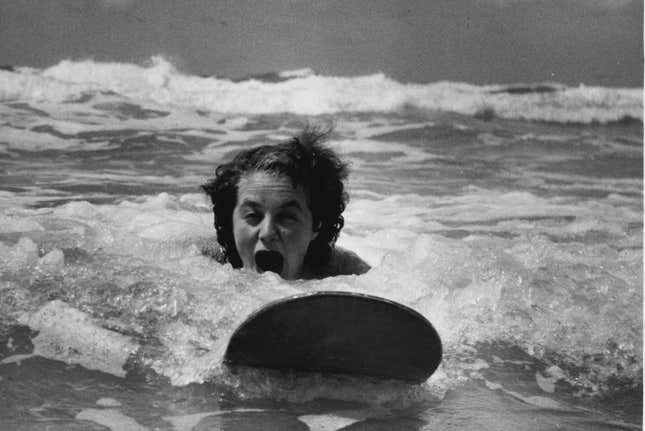
As my colleague Sarah Todd wrote for Quartz in 2016—after our shockingly bad kickball team won second place in the league’s playoffs—setting aside self-consciousness and partaking in sports as an adult is not just enjoyable, it also offers all kinds of valuable lessons about team dynamics: Be forthcoming about insecurities; support one another even when flailing; don’t underestimate the power of rituals, and so on.
Like most things that are worthwhile (learning a new language, falling in love), challenging oneself in sports carries a high risk of embarrassment. But ultimately it can open your world to people, places, ideas, and just plain joy that you might not have otherwise experienced. And who knows? You might even find something you’re good at.
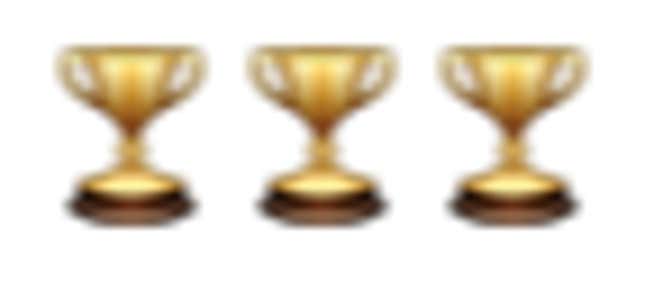
England’s winning psychology. A similarly chill attitude—or team psychology—helped England’s soccer team to emerge as a dark horse of this year’s World Cup tournament. (They’ll play against Belgium for third place tomorrow.)

The Guardian’s Emine Saner explained how the team’s new psychologist, Pippa Grange, has worked closely with the team to build trust and lighten the players’ fear of failure.
“Where once it was stuffed with entitled, surly stars, burdened with the weight of history and the pressure of expectations,” wrote Saner, “it now comes across as a hungry, humble team, playing with lightness and joy.”
One essential takeaway: Don’t visualize winning the trophy. Focus instead on the immediate task ahead, the moment you’re in. Also: Rather than dreading the possibility of failure, get excited about the opportunity to succeed—and enjoy the process of trying.
Quartzy’s honorary sportsmanship award goes to England coach Gareth Southgate, pictured here elegantly applauding fans after Croatia bumped his team from the final on Wednesday.
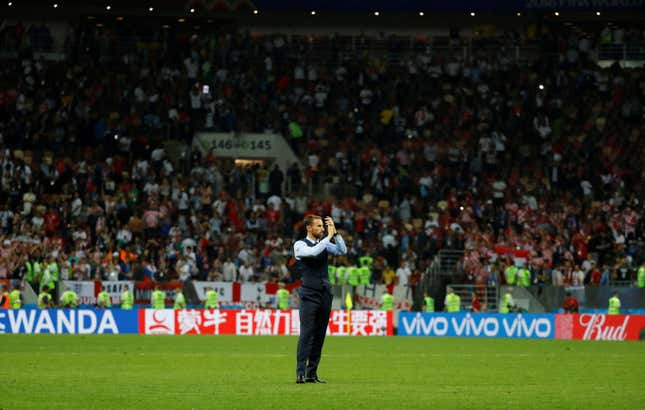
It’s good parenting advice too. Quartz reporter Jenny Anderson has written that letting kids fail is among the best things a parent can do. It’s hard to stifle the urge to complete tasks for your kids—whether that means doing their math problems, packing their backpack, or cleaning their bedroom—but it’s essential to raising resilient adults.
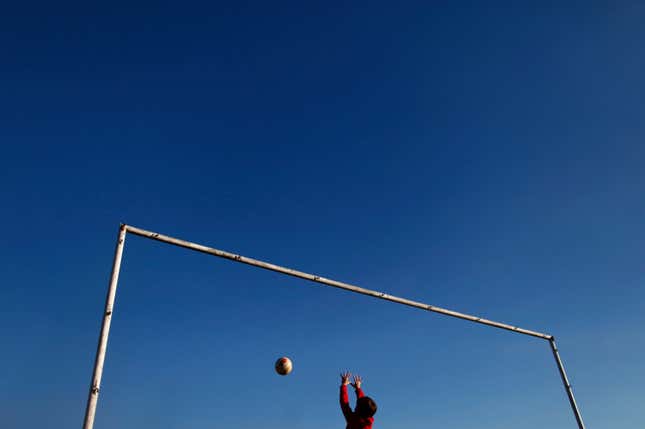
Jenny advises praising efforts rather than outcomes, and suggests that parents of athletes “cheer like a grandparent, and not a parent.” Rather than contesting the ref’s calls, criticizing the coach’s strategy, or cringing at an airball, do your best to support the team unconditionally, and you know, with good sportsmanship.
And finally, keep your eye on the ball. Serena Williams is headed into the Wimbledon women’s single final tomorrow, after beating Julia Görges yesterday in just an hour and ten minutes, 10 months after giving birth via a harrowing emergency C-section.
“I don’t have anything to lose, and I feel I can play so free,” said Williams. “That’s what I’m doing … I’m enjoying every moment.”
Quartz’s resident Zen master, Ephrat Livni, has written about one aspect of Serena’s supreme athleticism, the quiet eye—the ability to slow down one’s perception of time to facilitate greater focus and tune out distractions.
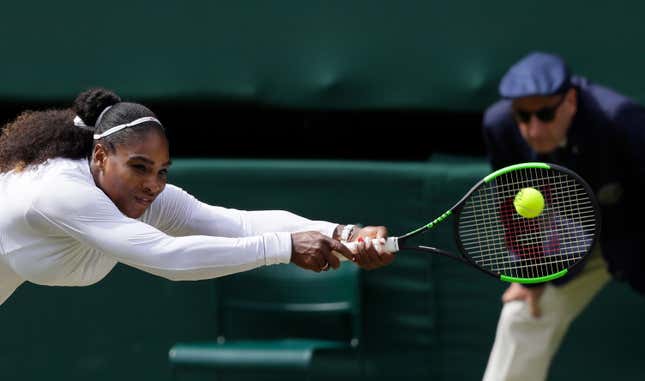
“If you are behind in a game, it’s so important to relax, and that’s what I do–when I’m behind in a game, that’s when I become most relaxed,” Williams told Sports Illustrated in 2015. “Just focus on one point at a time…just that sole point, and then the next one, and the next one.”
Joan Vickers, the kinesiologist who coined the term “quiet eye,” found that golfers and basketball players who use these long and steady gazes were significantly more successful than their shifty-eyed counterparts. In a society where distractions abound, writes Ephrat, it’s worth cultivating this slowed-down mode—even for those of us more gifted with sportsmanship than athleticism.
Next Friday, you can expect a letter from Quartz’s unparalleled TV and movies reporter, Adam Epstein. Until then, watch out for fly balls, and have a great weekend!
[quartzy-signature]
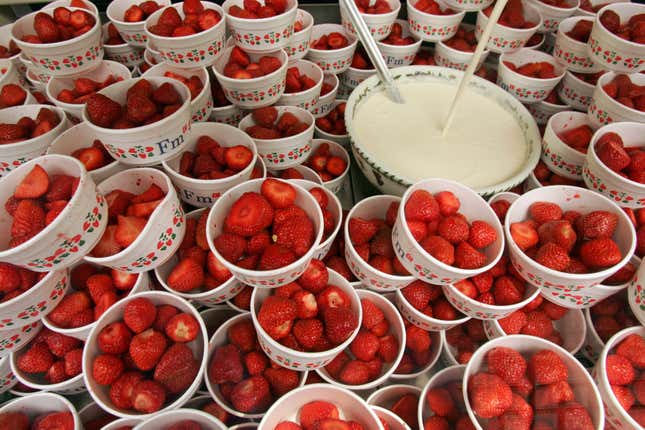
A semi-sporty snack. With its fresh strawberries and cream, Wimbledon has set the standard for classy concessions, rivaling even the liquid cheese-slathered nachos at US ballparks. Plus, they’re easier to make at home! Just slice some fresh strawberries, whip some cream with optional sugar and vanilla, and eat up. This is just as sublime in front of the second season of GLOW as it is while watching Wimbledon.